Whitney Henson first started monitoring with AWW in 2014 and became a dedicated citizen volunteer trainer just a year later. She has since graduated from Jacksonville State University with a Bachelors in Geography in 2015 and Masters in Emergency Management in 2017, helped establish the AWWsome monitoring group Jacksonville River Monitors and now works at NOAA’s Office of Water Prediction as an Associate Scientist.
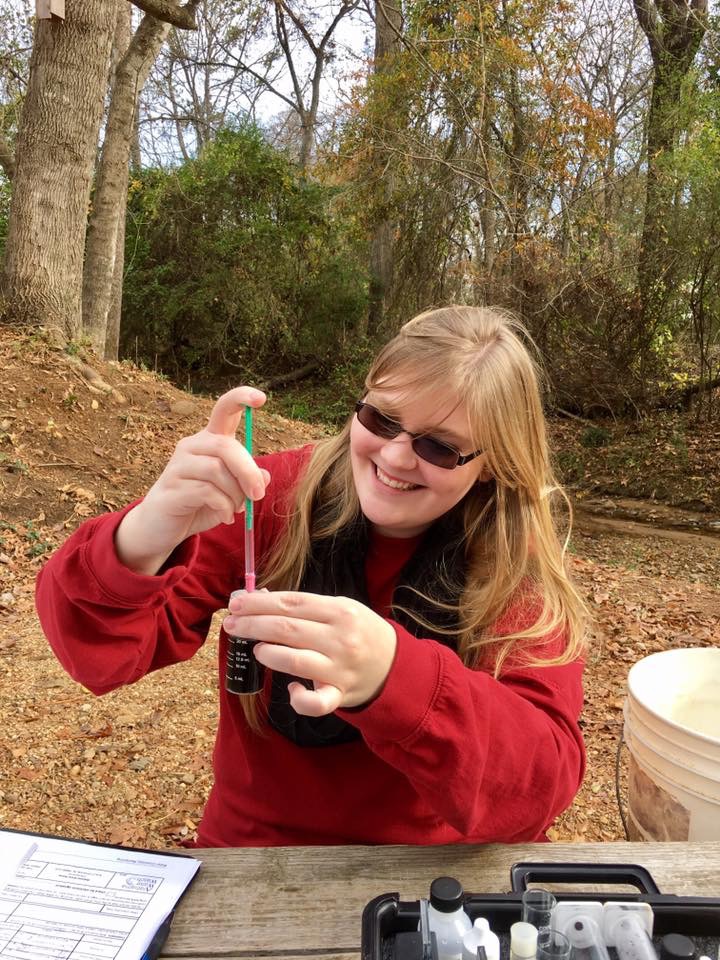
Whitney titrates a dissolved oxygen sample.
Let’s get to know Whitney better:
Where do you call home?
I would definitely call Jacksonville, Alabama my home. It is not only where I was born, but where I found my calling as a geographer! I earned both my undergraduate and graduate degrees from Jacksonville State University (JSU). I love everything about that little town, from its friendly folks to its beautiful scenery. It really is a beautiful place. You just have to explore it. There is so much to do, and I think the college has a lot to do with it.
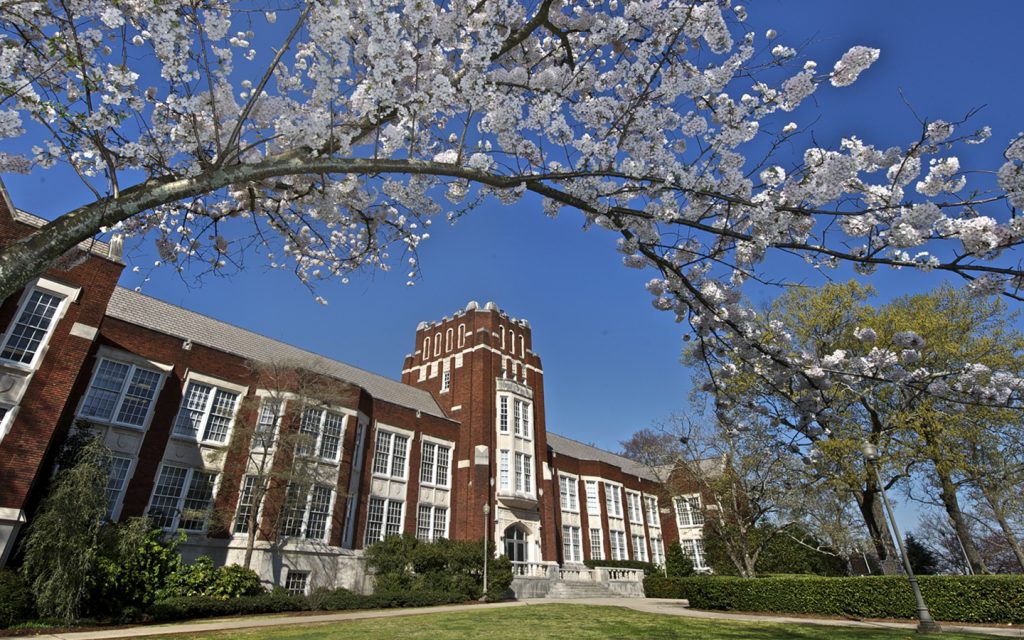
Bibb Graves Hall at Jacksonville State University. (Image Credit: www.JSU.edu)
What stream, river, lake, bay, bayou is your favorite water-spot?
I have so many favorite water spots, but I would have to say my favorite is the tributary that runs beneath the Chief Ladiga Trail in Jacksonville. When I went to school there, I would go on long walks on the trail when the weather was nice. If you start somewhere around JSU and take the south route towards Weaver, you’ll pass it. On the map, it’s called “Hanes Branch.” We always call it “Ladiga” when we’re monitoring. I have regularly monitored this stream for about four years, and I honestly feel like I can say I know this stream. Over time, I’ve picked up on its normal rhythm, so I notice pretty quickly when something’s up. Going on those walks, I would always walk really slowly when crossing the bridge passing the stream. “All good?” I’d say (out loud!). “See ya next Saturday!”
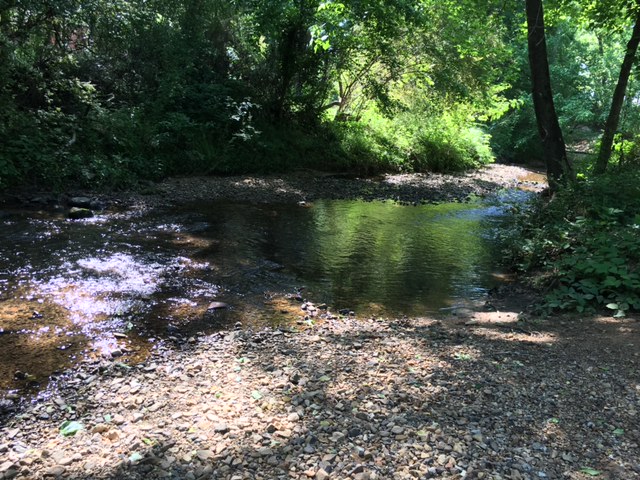
Whitney’s favorite (beautiful!) water-spot, Hanes Branch (aka “Ladiga”) in Jacksonville.
What water recreation/sports do you enjoy most?
I have recently gotten into canoeing in the past couple years, but nothing beats simply wading around or sticking your feet in your favorite water spot to cool down, or just to calm your mind.
What got you interested in Alabama Water Watch?
I was a member of the Geography Club while working on my undergrad at JSU and I got word of a Water Chemistry Workshop being offered by Mrs. Francine Hutchinson, who was actually a past biology teacher from the high school where I graduated. I remember taking the class with Ms. Jade Patolo and Dr. Stephen Tsikalas (also AWW Trainers!), who I had gotten to know from the Geography Department. I became really interested in the class and immediately signed up for the bacteriological Workshop as soon as it was scheduled. The workshops grew and eventually we had a solid group of certified monitors at JSU that became the Jacksonville River Monitors. Today, we are a recognized university organization with over 50 certified students and 20 active monitors. I am always amazed by what we accomplish and look forward to seeing what we do next!
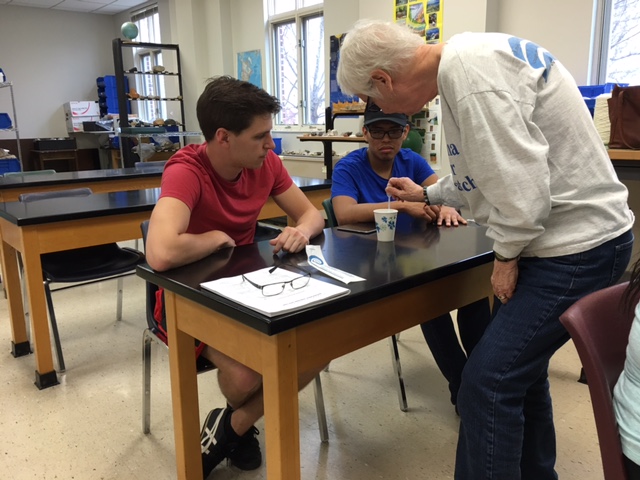
AWW Trainer Francine Hutchinson demonstrates bacteriological monitoring practices to JSU students.
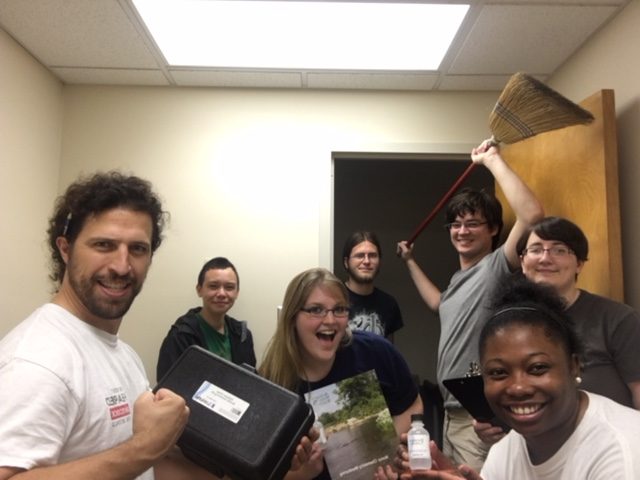
Jacksonville River Monitors, lead by Whitney and fellow AWW Trainer Stephen Tsikalas, are geared up to sample!
What are your biggest challenges/issues in your favorite watershed?
“Oh, she’s from the Anniston area. We all know what she’s about to say…”
… but seriously. My entire family grew up in the Anniston area, and in case there are some who might not be aware, Anniston is home to what some call a “toxic travesty.” From around 1940 to the 1970s, industries dumped millions of pounds of PCBs (polychlorinated biphenyls) into the town’s landfill and creeks. PCBs have been shown to cause cancers and and deformities in a variety of animals and humans. This issue hits close to home, as it directly affected my own family members, but it’s just one of the thousands of issues like this one that come up all across the country. This is something I wish not only Alabamians, but Americans, and ALL EARTHLINGS, were more aware of, and how they can do something about it today! Today is the day to make a difference. Even if it’s just your local stream or backyard waterbody. Even if it’s something as simple as picking up some trash, or knowing how to properly dispose of old medicine. Those efforts will ripple out into incredible differences for our watersheds, and our downstream neighbors!
Do you have some “lessons learned” that you could pass on to the rest of us relative to watershed stewardship?
One of the most rewarding lessons for me is going to some of the watershed groups across the state and learning how long thy had cared for a certain stretch of river, lake, or tributaries, and how it had changed over the years. Nothing beats local knowledge, and that’s one of the things I love about this program. It brings out the best in these communities by providing the technical links and knowledge while also leveraging years of local experience. That makes for a pretty AWWsome effort, and I am grateful to be a part of it!
Thanks for Water Watching with us, Whitney!!

Jacksonville River Monitors are very dedicated – they will even sample in the freezing snow!
